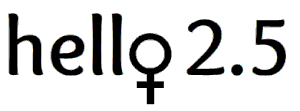You had a great lunch with the girls – with stimulating conversation about today’s headlines. But later as you reflect on the exchange of topics, you realize what you’ve read on your computer’s websites hadn’t offered a wider view of opinions and ideas. You assumed your online news source and your go-to google search box gave you a broader perspective, but it’s likely you have fallen victim to living in an online filter bubble.
Never heard of such a thing? Eli Pariser, in a 2011 TED talk, does a great job explaining the implications of today’s online filter bubble. He delves into the web and how it is narrowing our worldwide view by showing us what it thinks we want to see, but not necessarily what we need to see.
The sites you visit when you’re in a filter bubble – the news articles you read and the searches you pursue – are captured and analyzed to bring you what you want (or someone thinks you want) in your search results. The filter bubble keeps you focused in the same direction as your past searches, so discovering new views and information can be challenging.
Living in a filter bubble can be uplifting, if you’re someone who likes to read articles that align with your way of thinking, but what you’ll be missing is a more realistic look at the world around you. A wider lens helps you see both sides of a topic or a deeper view of a news headline.
How do you climb out of your filter bubble? The biggest challenge is getting out of your comfort zone on the web and here are some ways to begin:
- Use different search engines to find items (Google vs. Bing).
- Visit multiple social media platforms, especially those focused on building their news streaming partnerships to offer more variety and views.
- Expand where you get the latest news beyond your local TV channel or popular cable networks.
- Choose other websites that friends suggest to get a snapshot of their views and commit to reading articles from two different sources when researching a topic (Forbes vs. Wired Magazine).
In the end, you’ll be comfortable discussing issues with friends knowing that your opinions on topics have come from a wide-range of credible sources.
And finally, one of the more important ways to leave the filter bubble is to get off the computer and talk to people. Make it a point to unplug and have inspiring conversations with people who offer different perspectives. You may not agree with every idea, but you’ll have opened your mind to other possibilities.
Image courtesy of niroworld/Adobe

